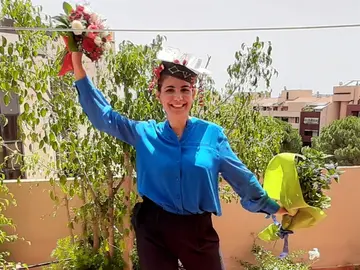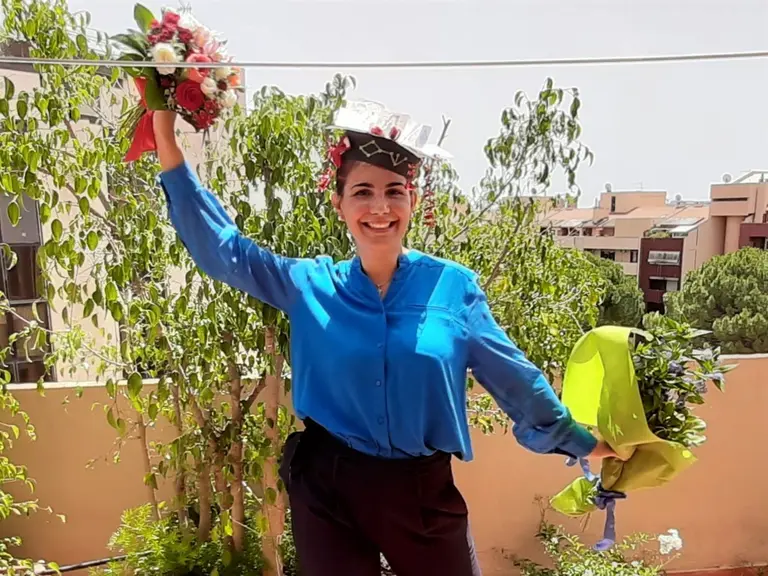
Congratulations on First Successful Virtual PhD Defenses
Published Jun 22, 2020
Congratulations to Raffaella Mulas and Pau Vilimelis Aceituno on the successful defense of their PhD theses which took place under special circumstances as online sessions at the University of Leipzig. We are very proud and wish them all the best for their future careers.
Dr. Raffaella Mulas
Spectra of Normalized Laplace Operators for Graphs and Hypergraphs
In her PhD thesis Raffaella Mulas proved new spectral properties of the normalized Laplace operators for graphs and defined a new class of hypergraphs. The chemical hypergraphs that she introduced are hypergraphs with the additional structure that each vertex in a hyperedge is either an input, an output or both. For such hypergraphs, she also defined two generalized Laplacians and studied their spectral properties. This new theory has been gaining a lot of attention lately, both from theoretical mathematicians and applied scientists.
Raffaella comes from Cagliari, Italy. She earned her Bachelor's degree at the University of Udine and her Master's degree at the University of Bonn under the supervision of Ngoc Mai Tran. Since September 2017 she is a PhD student in Jürgen Jost’s group. Besides research, she is interested in science communication and enjoys drawing, traveling, swimming and dancing Swing and Blues.
Dr. Pau Vilimelis Aceituno
Structure, Dynamics and Self-Organization in Recurrent Neural Networks: From Machine Learning to Theoretical Neuroscience
Pau’s research sits at the intersection between Graph Theory, Artificial Neural Networks and Theoretical Neuroscience. First, he used tools from signal processing to show how recurrent artificial neural networks can be improved by tuning their structure and, accidentally, discovered that the spectra of large random graphs with cycles take the shape of hypotrochoids, the same shape that is drawn with spirographs, a popular children's toy. Having characterized the structures that improve artificial systems, Pau investigated whether these same ideas could be applied to biological neural networks. He found that biology was way ahead: the dynamics that he had to carefully design could emerge naturally from simple learning rules that had been observed in biological brains for more than 30 years!
Pau Vilimelis Aceituno studied Telecommunications Engineering at INSA Lyon, France and earned his Master’s degree at KIT Karlsruhe. He worked as a software developer, on designing computer vision algorithms for space missions and compilers for hardware that makes mistakes. He also has a general interest in statistical physics, cryptography, game theory and evolution. Before starting his PhD studies in 2016 in Jürgen Jost’s group he was a visiting scholar at the Harvard Medical School in Boston, USA. Besides his studies he also worked as a mentor at the Max Planck School of Cognition. In July, Pau will move to ETH Zurich as a postdoctoral researcher.
Scientific Contact
Editorial Contact
Related Content

Successful Dissertation on Real Algebraic Geometry for Physics and Optimization Successful Dissertation on Real Algebraic Geometry for Physics and Optimization

This Week was MEGA This Week was MEGA

Anna Wienhard is a Plenary Speaker at the ECM 2024 Anna Wienhard is a Plenary Speaker at the ECM 2024


